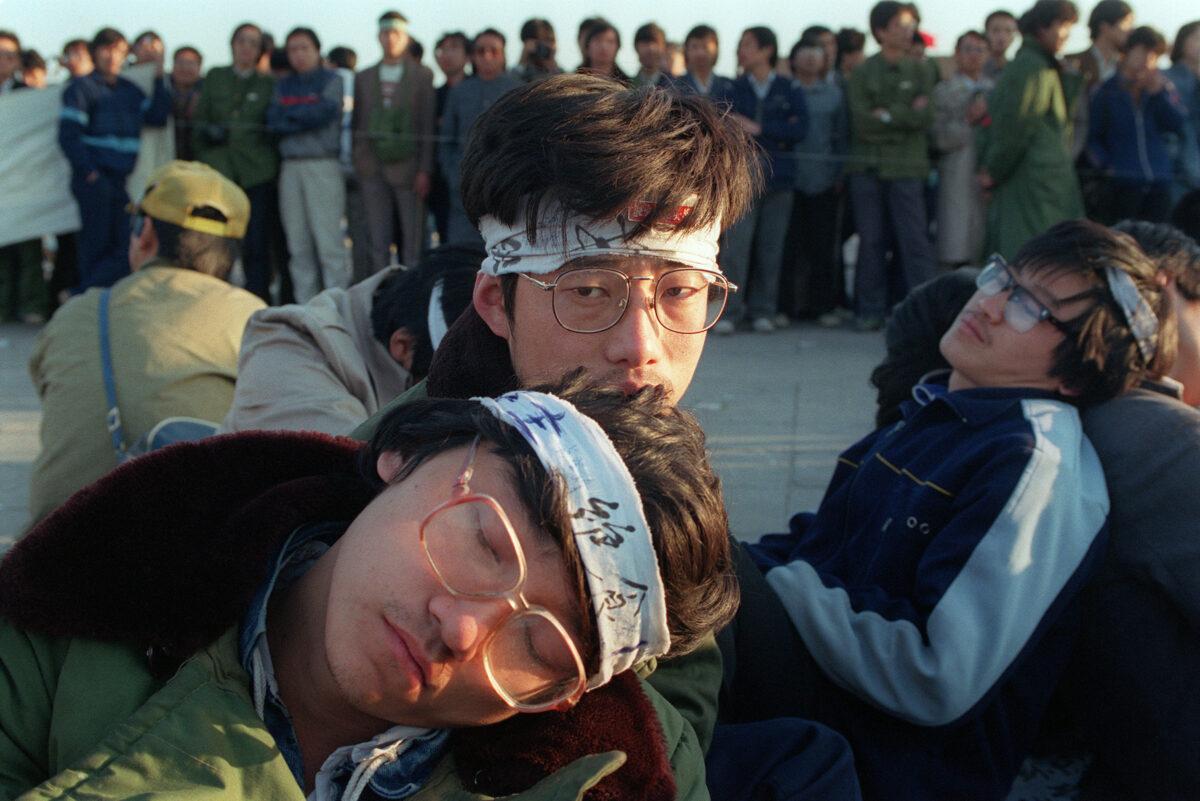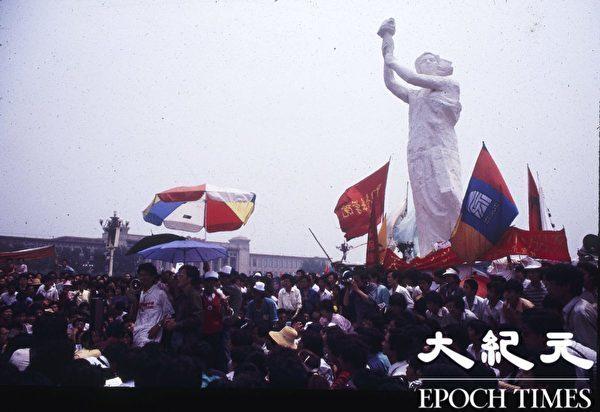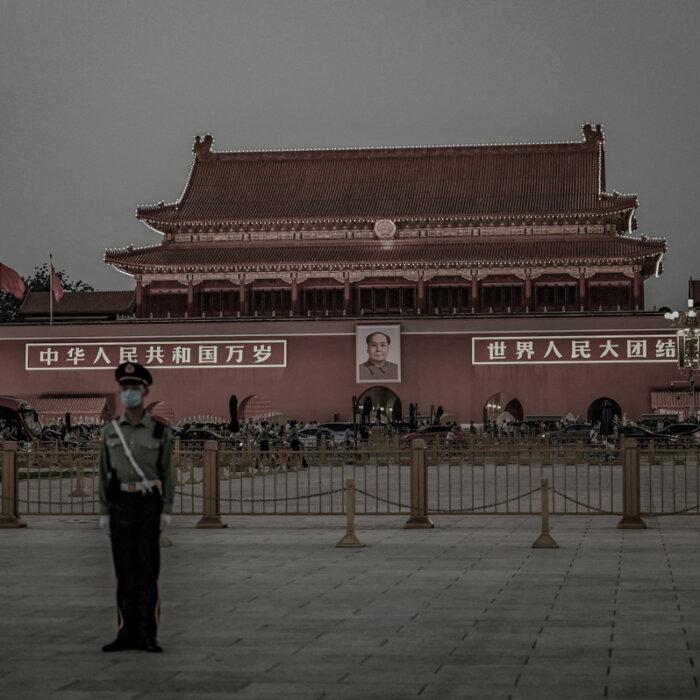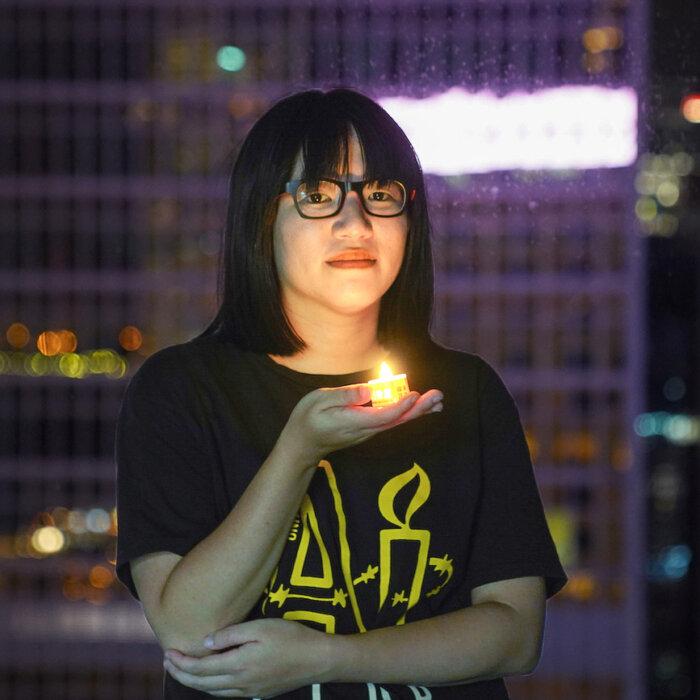On the 35th anniversary of the Tiananmen Square protests, human rights supporters continued to speak up about the democratic uprising that was brutally suppressed by the Chinese Communist Party (CCP) on June 4, 1989. The incident led to a massive death toll among unarmed students, and for decades, the CCP has systematically censored all information related to the massacre.
“People commemorate the ‘June 4 Incident’ because it symbolizes universal values such as democracy, freedom, human rights, and peaceful protest. It stands as a bloody testament to the courage and resistance of the Chinese people,” said Du Wen, the former executive director of the Legal Advisory Office of the Inner Mongolia Autonomous Region Government, now in exile in Europe.
Distorted Facts
Jiang Shan (pseudonym), a lawyer, told The Epoch Times that many TV stations across China initially reported positively on the 1989 student movement, and everyone knew about it. However, the CCP later covered it up or distorted it with propaganda and labeled it a student riot in textbooks.The regime has primarily referred to the 1989 students’ protest as the “political turmoil” and “counter-revolutionary riot.”
According to Mr. Jiang, students are now strictly prevented from gathering, especially since the “White Paper Movement.” Many colleges and universities require students to leave campus during holidays.
He said, “This incident is rarely commemorated in China except by those who were students in 1989. Many have been indoctrinated or have integrated into the CCP system, singing its praises and no longer mentioning or remembering this event.”
‘Tiananmen Mothers’ Are Aging
The “Tiananmen Mothers” is a Chinese rights group composed of the families of those killed in the massacre. Every year, they issue an open letter to the authorities demanding the truth about the massacre, compensation for the families, and accountability for the perpetrators.Recently, some members of the group issued an open letter reaffirming their demands for truth, compensation, and accountability. They expressed dissatisfaction with the regime’s 35 years of silence and could not accept or tolerate the party’s historical “misrepresentation and disregard for facts” regarding the 1989 student movement.
Among the “Tiananmen Mothers” group, over 70 members have passed away without seeing justice for their loved ones.

Suppression by Authorities
In recent years, the CCP has used all available control tools to block and ban publications, newspapers, print and electronic media, the internet, and social platforms related to the massacre. In China, scholars and researchers are prohibited from organizing and studying topics related to the 1989 incident. Educational materials in colleges and schools never mention the 1989 student protest or the massacre. Teachers are forbidden to discuss the incident in classrooms, and school libraries and bookstores are strictly prohibited from carrying related publications.Memories Persists
Beijing dissident Huang Tian (pseudonym) told The Epoch Times that despite the censorship that blinds younger generations to the massacre’s brutality, relevant information on the free world’s internet is available to those who bypass the firewall, continuing to awaken more Chinese.“It’s impossible for the CCP to completely erase the truth of the June 4th incident,” Mr. Huang said.
He also expressed his hopes that victims of the 1989 student protest would speak up to the people around them, including friends, family, colleagues, neighbors, and especially the police and guards tasked with watching them.
Mr. Zhang (pseudonym), a freelancer who returned to China from abroad, told The Epoch Times that with so many libraries and publications overseas, the CCP could not erase the memory or records of the 1989 student protest and the massacre.
“This is known among people in our circle, including some high-level state officials with a conscience and foresight who have secretly preserved various newspapers from that time,” according to Mr. Zhang.
True Justice
Mr. Huang emphasized that the CCP has no right to redress “June 4.”“Every year, people call for the CCP to redress the 1989 student protest and the June 4 Massacre, which I find absurd. How can criminals redress their own crimes? How can we ask criminals to redress their victims? The CCP and those who participated in the violent suppression can only be judged. They have no right to redress.”
Mr. Zhang also questioned the justification of the call for “redressing June 4,” as it implies a subconscious recognition of the CCP’s legitimacy.
“The collapse of the CCP is the only way to resolve the blood debt the CCP committed on June 4, 1989,” he believes.






